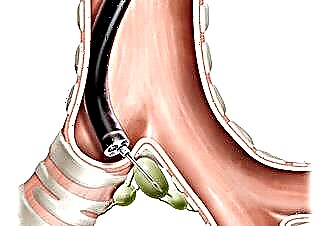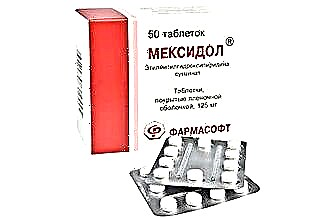Blood pressure (BP) is the force with which the blood presses on the walls of the vessels. If we talk about the norm of this indicator, then it is in the range of 110/65 - 139/89 mm Hg. Everything above is hypertension, below is hypotension. According to this parameter, people are divided into hypertensive and hypotensive. But how do both groups respond to pressure increases? Who has it more severely? We will try to answer these questions below.
What complaints do a hypotensive have with an increase in blood pressure?
High blood pressure symptoms:
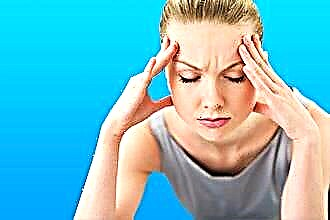 headache;
headache;- nausea;
- dizziness;
- chills;
- heartache;
- palpitations or interruptions in its work;
- urge to vomit;
- hot flush to the face;
- cold hands;
- drowsiness;
- shortness of breath on exertion;
- feeling tired;
- bleeding from the nose;
- deterioration of vision;
- glare, flickering, spots in front of the eyes;
- swelling;
- redness of the face.
A jump in blood pressure against the background of a decrease: what are the symptoms and causes of the condition?
Causes of episodes of high blood pressure in a hypotensive:
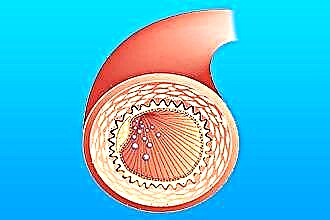 decrease in vascular elasticity with age;
decrease in vascular elasticity with age;- a reduced amount of estrogen in a woman's body;
- atherosclerotic process;
- taking coffee, alcohol, nicotine;
- stress factor;
- pregnancy;
- eating fried, fatty foods with a high amount of spices;
- diabetes;
- sedentary lifestyle;
- pathology of the thyroid gland, kidneys, adrenal glands.
If a person is characterized by low blood pressure, most likely he is adapted to it and feels great with such numbers. Complaints arise when the indicator increases.
These include:
- anxiety;
- fear, panic attack (more often in people suffering from VSD (vegetative-vascular dystonia);
- sleep disturbance;
- headache;
- dyspnea;
- feeling short of breath;
- nausea;
- vomit;
- noise in ears;
- palpitations;
- dizziness;
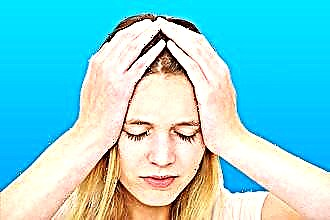 deterioration in thinking;
deterioration in thinking;- throbbing in the head;
- fatigue;
- heartache;
- muscle pain;
- hot flush to the face;
- darkening before the eyes;
- deterioration in performance;
- sweating;
- loss of orientation in space;
- tremor;
- numbness in the limbs;
- hearing and vision impairment.
It is important to note that an increase in blood pressure in hypotensive patients with age is very common. This requires special attention from both the doctor and the patient. The reason for such actions is the fact that the target values of blood pressure during treatment and the therapy itself differ in the regimens that are used for other groups of patients.
What indicator is considered elevated in a person with hypotension?
A hypotonic person is a person whose normal blood pressure is 90-100 / 60 mm Hg. or less.
 When blood pressure rises to 121-130 / 90 mm Hg and more, this causes complaints in these patients. Figures that are higher than these indicators can be considered elevated in a person prone to hypotension.
When blood pressure rises to 121-130 / 90 mm Hg and more, this causes complaints in these patients. Figures that are higher than these indicators can be considered elevated in a person prone to hypotension.
Determining the increase in pressure in such a cohort of patients is not so difficult. It is often even easier than in hypertensive patients. This is due to the fact that the tone of its vessels is reduced, while in people suffering from high blood pressure it is increased.
Symptoms that deserve special attention, since they most accurately indicate a pressure surge in hypotensive patients:
- headache (bursting);
- nausea;
- deterioration in thinking;
- dizziness;
- throbbing in the head;
- deterioration of vision and hearing;
- noise in ears;
- darkening before the eyes;
- vomit.
What help should be provided at home?
Consider the normal increase in blood pressure in a hypotonic person 121-130 / 90 mm Hg. not properly! Such indicators in a person suffering from low blood pressure can sometimes even be considered a hypertensive crisis, which requires an immediate call for an ambulance or an independent visit to a doctor.
First you need to find out:
 The pressure has been steadily increasing lately, or is this a recent short-term incident?
The pressure has been steadily increasing lately, or is this a recent short-term incident?- How often do pressure surges occur?
- What can increase or decrease the indicator?
- What is the normal BP for the patient?
- Did your relatives have a similar condition?
It is very important to carry out the whole range of examinations. Especially if it's a young man. In order to exclude a number of serious diseases that can increase blood pressure.
If the episode of an increase in blood pressure was a single one, or it was changed slightly without causing discomfort to the patient, it is necessary to start with non-drug treatment.
Non-drug methods
Such options include the following measures aimed at improving the patient's lifestyle:
- quitting smoking and alcohol;
- normalization of nutrition: reduce salt intake, increase the amount of vegetables and fruits, fish in the diet;
- increasing physical activity: swimming, walking, physiotherapy exercises, yoga, breathing exercises;
- walks in the open air;
- reducing stress.
What medications can I take?
If non-drug methods have not been beneficial and blood pressure continues to jump, it is worth resorting to drug treatment. It is important to remember that drugs to lower blood pressure, hypotension can only be taken as directed by a doctor. This also applies to dose adjustment.
Often, for treatment they use:
- beta-blockers: Metoprolol, Bisoprolol, Nebivalol;
- antiplatelet agents: Aspirin, Curantil;
- lipid-lowering agents (statins): Atorvastatin, Simvastatin;
- sedatives;
- diuretics and hypoglycemic drugs, if necessary;
When can you not do without an ambulance?
Cases in which you need to call an ambulance:
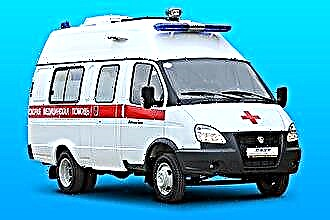 the patient alone or with the help of relatives cannot lower high blood pressure;
the patient alone or with the help of relatives cannot lower high blood pressure;- symptoms of a hypertensive crisis do not disappear, but only intensify;
- complications have arisen;
But I would like to emphasize that even if you have a condition of high blood pressure for the first time, it is recommended to seek medical help!
What should a person with low blood pressure do to prevent a spike in blood pressure?
In order to avoid sudden surges in pressure, hypotension needs to focus its efforts on preventing the occurrence of such a condition. This result can be achieved through a healthy lifestyle and risk factors correction, as described above.
Conclusions
In conclusion, it should be said that many hypotensive patients acquire a disease such as arterial hypertension with age. They are more likely to have strokes, heart attacks, and heart ruptures. Therefore, treatment is mandatory. Each morning should begin with taking your medication if needed. To avoid sharp rises in blood pressure that occur at this particular time of day. It is also important not to self-medicate and not to look for information about this on forums where people without medical education give advice, because doses and medications for the treatment of hypertension are selected individually, especially for hypotensive patients.
Take care of your health and be happy!

 headache;
headache; decrease in vascular elasticity with age;
decrease in vascular elasticity with age; deterioration in thinking;
deterioration in thinking; The pressure has been steadily increasing lately, or is this a recent short-term incident?
The pressure has been steadily increasing lately, or is this a recent short-term incident? the patient alone or with the help of relatives cannot lower high blood pressure;
the patient alone or with the help of relatives cannot lower high blood pressure;